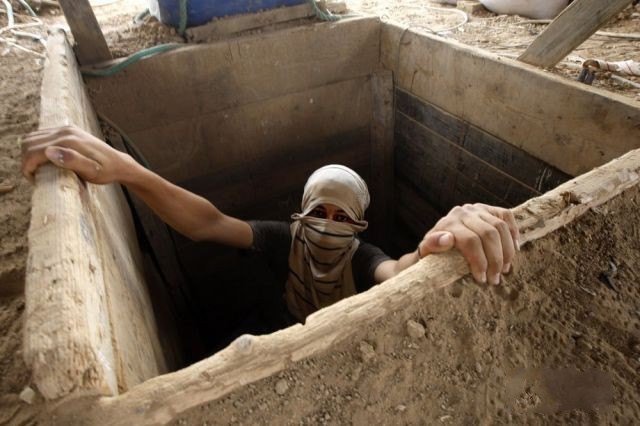Regional diplomatic efforts gained momentum this week as Egypt and Jordan continued consultations amid mounting humanitarian concerns in the Gaza Strip. According to a statement from the Jordanian Foreign Ministry, Egyptian Foreign Minister Badr Abdelatty and his Jordanian counterpart Ayman Safadi discussed ongoing steps to reinforce the ceasefire in Gaza and the draft UN Security Council resolution outlining post-ceasefire arrangements.
The ministers stressed that the resolution must consolidate the cessation of hostilities and empower an international stabilization force to fulfil its mandate in a manner that ensures the security of Palestinians and supports meaningful progress toward establishing an independent Palestinian state on the June 4, 1967 borders with East Jerusalem as its capital.
They underscored the importance of fully implementing the ceasefire agreement, including the immediate and sufficient entry of humanitarian aid into Gaza, and linking stabilization efforts to a credible political horizon that guarantees a just and comprehensive peace based on the two-state solution. The two sides also reviewed preparations for the upcoming international conference on early recovery and reconstruction in Gaza, highlighting the need for robust regional and international backing to ensure effective implementation of the reconstruction plan and mitigate humanitarian suffering.
Meanwhile, Hamas issued a public appeal urging Arab societies and “free people of the world” to maintain pressure on Israel to lift the blockade and open all border crossings. The group warned that worsening shortages of food, medicine, clean water, and shelter—combined with a collapsed healthcare system—pose a “real threat” to civilian lives, particularly with the onset of winter. Hamas accused Israel of repeated ceasefire violations and obstructing aid entry, calling on guarantor states to press Israel to open all crossings, including Rafah, to allow medical supplies, tents, and emergency shelter, and to facilitate patient evacuations.
Separately, the Israeli newspaper Haaretz reported new details on the controversial flights transporting Palestinians from Gaza via Ramon Airport. According to the report, the flights were arranged by an organization run by a dual Israeli-Estonian national, which was later revealed to be a front for an Estonia-registered consultancy firm. The disclosure followed South Africa’s decision to admit dozens of Palestinians who had arrived in Johannesburg from Kenya after initially being denied entry over documentation issues.
In parallel, the Prisoners’ Media Office said that Palestinian detainee Abdullah Barghouti—sentenced to 67 life terms—has been subjected to “severe and systematic physical and psychological torture” since his arrest in 2003. The office alleged repeated raids on his cell at Gilboa Prison, involving attack dogs and beatings that caused deep wounds and multiple fractures, without adequate medical treatment. The organization described the abuse as consistent with public threats made by National Security Minister Itamar Ben-Gvir toward Palestinian detainees.
The Palestinian Prisoner’s Club said Israel’s acknowledgment of the deaths of 98 detainees suggests the actual figure may exceed 100. The group noted that some detainees were shot before arrest and later died in Israeli hospitals, while others were allegedly executed in the field. It said these findings provide further evidence of “the scale of the ongoing crime” against Palestinian prisoners.
Humanitarian concerns continue to escalate as severe winter weather compounds Gaza’s crisis. The UN Office for the Coordination of Humanitarian Affairs (OCHA) reported that recent floods and heavy rainfall affected more than 13,000 families. Ismail Al-Thawabteh, spokesperson for the Gaza government media office, said that 288,000 families are facing “extreme hardship” under harsh conditions, accusing Israel of maintaining strict limitations on the entry of tents and emergency supplies and keeping crossings closed. He said “tens of thousands of tents were flooded during the first winter storm,” urging the United States and guarantor states to ensure Israel upholds its commitments under the ceasefire agreement.
In Ramallah, the Palestinian Foreign Ministry and several human rights organizations called for immediate international action to halt what they described as systematic violations against detainees. Senior ministry official Omar Awadallah said at a press conference that the situation demands “urgent international intervention,” particularly as Israel moves forward with a draft law that would permit the execution of Palestinian prisoners.
In Israel, Channel 12 reported that Ben-Gvir told Prime Minister Benjamin Netanyahu—who faces an arrest warrant from the International Criminal Court for alleged war crimes—“Arrest Abu Mazen, and I will take care of him,” remarks that have drawn strong criticism.
In Berlin, a German government spokesperson said that the decision to lift certain restrictions on arms sales to Israel beginning next week is directly tied to maintaining the Gaza ceasefire. “The ceasefire is the basis for this decision, and we expect all parties to abide by the agreements, including ensuring large-scale and orderly humanitarian aid delivery,” the spokesperson said.

